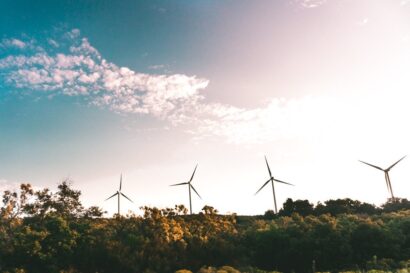AG INSIGHT | 14/02/2020
Why circular economy and net zero need a happy ever after

Rowland Hill, Head of Sustainable Development reporting at Mark and Spencer, uses Valentine’s Day to make the case for a circular economy.
For over a quarter of century the marriage between Circular Economy and net zero (under various nick-names) has been uneasy.
There’s been good times when we could almost believe they wanted the same things in life, like preventing pollution, but when it really came down to it- the incompatibilities showed through. For while, the marriage guidance counselling offered by ‘footprinting’ and ‘life cycle analysis’ looked as though it might provide common ground. But alas, there were too many strings and at the end of the day Circular Economy only really cared about waste and Zero Carbon only wanted to stop carbon emissions.
Special occasions were the most memorable. Easter brought forth copious volumes of hot cross bun and chocolate eggs. With an annual PR competition to see who could capture the biggest headlines for reducing the weight of packaging on Easter Eggs…by using more unrecyclable plastic.
In truth, we all picked a side. When I came into this job, waste held sway and our successes were measured in tonnes. Carbon then came to fore and CO2e was our metric of choice. At present we are flipping between the two based on the last headline we read. And sadly, our planet is out of time. We all need to make this relation between Circular Economy and net zero work. No more one-night stands.
Honesty
Aren’t all relationships based on honesty? They both clearly care passionately about pollution but are we fighting climate or waste as our first priority? And don’t say the two together, you have to pick one! Having got that out on the table we move onto incentives.
Incentives
Incentives can be big (like a new house) or small (like a favour). But they have got to send a consistent message or it ends up as a political form of gaslighting. On the one hand, I love you because…on the other, you’ll be the end of our planet. Multiple fiscal intervention such as single use plastic taxes, modulated extended producer responsibility levies, deposit return scheme charges and refundable deposits will leave companies and consumers dazed and confused. Do you love us or hate us? What we need is a single clear and effective fiscal intervention, a clear message.
Communication
I love you because…you help to reduce carbon emissions in all its forms (such as food waste). Although its not ideal, you might create some waste but I can forgive you because it’s easily recyclable, feeds back into the production process, is fully funded and absolutely avoids pollution.
Sharing the same vision
This is the real test of any healthy partnership: putting our owns wants aside to work together for the shared good. No running off and building expensive deposit return schemes before you’ve agreed on the basics (known as extended producer responsibility). No taxing one thing in the name of climate-risk before you’ve considered what the alternatives might be. Start at the beginning and work through to the end which gives the result we all want.



